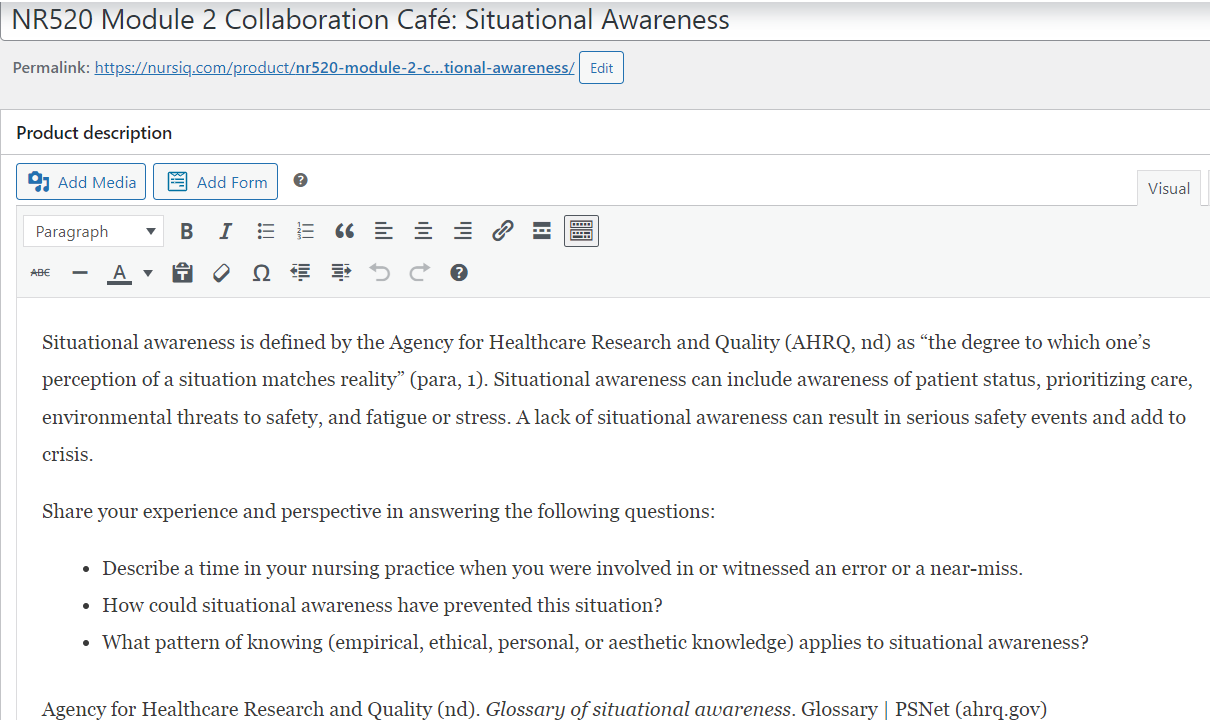COURSE:
NR520 – Applied Theoretical Foundations Scientific Inquiry and Decision-Making
Collaboration Café
Situational awareness is defined by the Agency for Healthcare Research and Quality (AHRQ, nd) as “the degree to which one’s perception of a situation matches reality” (para, 1). Situational awareness can include awareness of patient status, prioritizing care, environmental threats to safety, and fatigue or stress. A lack of situational awareness can result in serious safety events and add to crisis.
Share your experience and perspective in answering the following questions:
- Describe a time in your nursing practice when you were involved in or witnessed an error or a near-miss.
- How could situational awareness have prevented this situation?
- What pattern of knowing (empirical, ethical, personal, or aesthetic knowledge) applies to situational awareness?
Agency for Healthcare Research and Quality (nd). Glossary of situational awareness. Glossary | PSNet (ahrq.gov)
SOLUTION
- Describe a time in your nursing practice when you were involved in or witnessed an error or near-miss.
During a shift in labor and delivery, I witnessed a near-miss involving the administration of Cytotec (misoprostol) to a patient for labor induction. The nurse was preparing the medication for oral administration but had not properly verified the dose. The order called for 50mcg of cytotec. The nurse pulled a 200mcg dose of cytotec instead. Fortunately, the nurse caught the mistake before administering the medication to the patient.
- How could situational awareness have prevented this situation?
Situational awareness could have prevented this near-miss if the nurse had more carefully reviewed the………………purchase at $5

Reviews
There are no reviews yet.